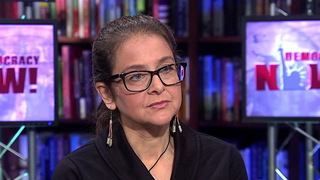
Topics
The government of Peru is taking the unprecedented step of suing the Inter-American Commission on Human Rights over the case of New York activist Lori Berenson.
The Human Rights Commission recently recommended the Peruvian government give reparations to Lori Berenson. The Commission was considering passing Berenson’s case on to the Costa Rica-based Inter-American Court of Human Rights, when Peru announced it would sue the commission.
The Inter-American Court of Human Rights is a legal arm of the Organization of American States, and can legally bind member countries, including Peru.
A secret military court convicted Lori Berenson in 1996 of being a leader of the Tupac Amaru Revolutionary Movement in its failed attempt to seize Congress. The hooded military judge sentenced Berenson to life in prison. A civilian court later overturned that ruling, but convicted Berenson of helping the rebels, and sentenced her to twenty years.
Berenson has consistently maintained her innocence. She has spent seven years in prison.
The Human Rights Commission has not made public its recommendation. According to Reuters newswire, at issue is whether the civilian retrial respected human rights and due process.
Reuters cited a respected human rights lawyer who had seen the document.
The lawyer says the Commission condemned the so-called 'anti-terrorism' laws introduced by former president Alberto Fujimori. The lawyer said the commission blasted the very legal definition of what constitutes terrorism or terrorist collaboration as a violation of human rights.
Guest:
- Rhoda Berenson, Lori Berenson’s mother and author of “Lori: My Daughter, Wrongfully Imprisoned in Peru” (with a new edition just published by Northeastern University Press in Boston).
- Mark Berenson, Lori Berenson’s father.
Related link:











Media Options